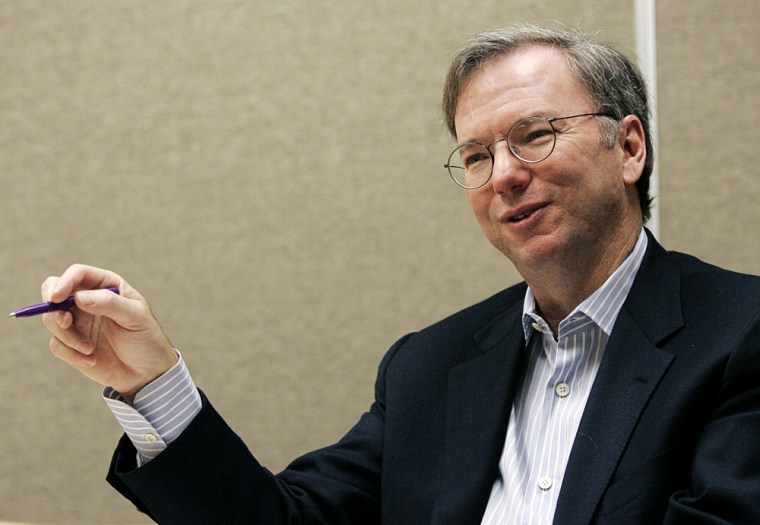Web search leader Google Inc.'s chief executive, Eric Schmidt, sees a future where mobile phones are free to consumers who accept watching targeted forms of advertising.
Schmidt said Saturday that as mobile phones become more like handheld computers and consumers spend as much as eight to 10 hours a day talking, texting and using the Web on these devices, advertising becomes a viable form of subsidy.
"Your mobile phone should be free," Schmidt told Reuters. "It just makes sense that subsidies should increase" as advertising rises on mobile phones.
He was interviewed following a speech on the theme of business innovation organized by Italian student groups and the Graduate School of Business at Stanford University.
Schmidt also said his company was working on how to allow users to maintain basic control of their personal data.
Currently, Google stores consumer data on hundreds of thousands of its own computers in order to provide additional services to individual users. The company is looking to allow consumers to export their Web search history or e-mail archives and move them to other sites, if they so choose.
"We are working to ensure that as long as it is yours, we want to give you the equivalent of number portability," Schmidt said at another conference earlier this week. Portability is a government-mandated program that allows consumers to retain their mobile phone numbers when they switch carriers.
This undertaking is both a recognition of users' right to control their personal information, an effort to head off regulatory action and a response to an increasing trend on the Internet toward openness rather than exclusivity, he said.
"Data should never be held hostage. We might as well get ahead of it before a law gets passed forcing us to do that."
Google is experimenting with delivering text, brand-image and video ads onto small-screen mobile phones. It is enjoying early success in its strategy to win phone network allies in Japan, where TV viewing and shopping on phones is advanced, he said.
The Google executive said his own company had no plans to directly give away phones itself, nor is he aware of any effort by partners such as phone makers Nokia or Motorola or mobile operators like Vodafone to make such a radical move, he said.
Schmidt acknowledged that mobile phones may never become totally free to the consumer. Newspapers are still not completely free a hundred years after they started relying on advertising, but they certainly are inexpensive, he noted.
The company, which will derive virtually all of its expected $10 billion in revenue this year from selling text ads to computer users who use Google to search the Web, has said previously it expected mobile phone advertising to match computer-based ad revenue over time.
